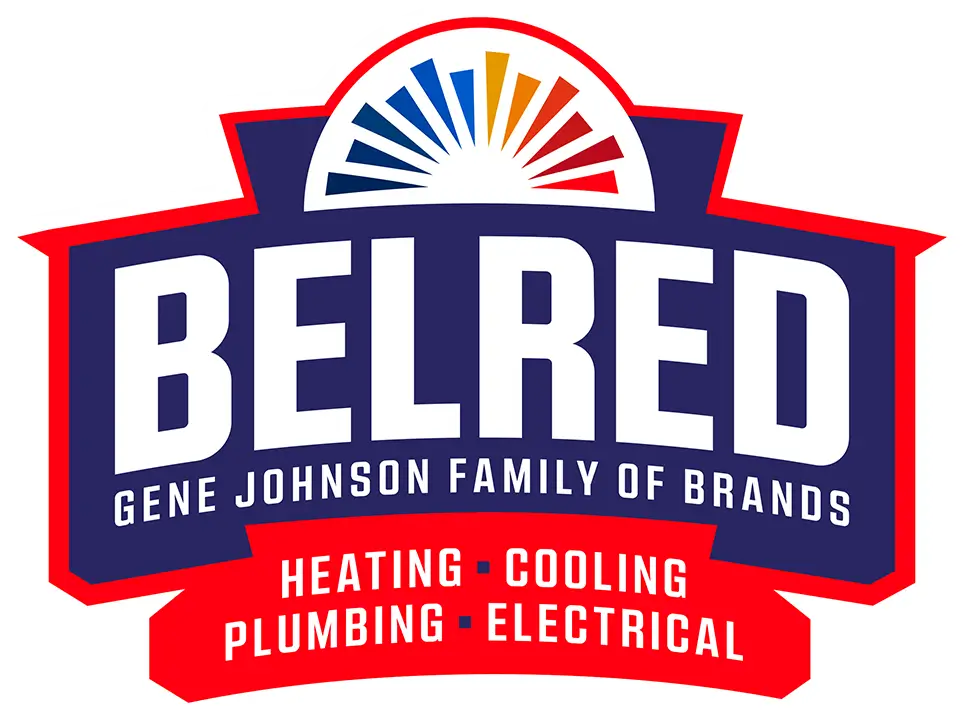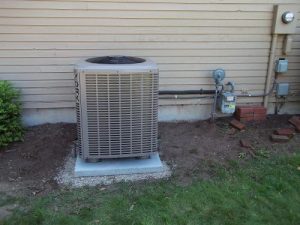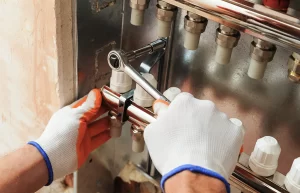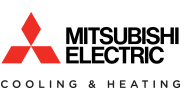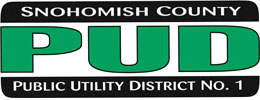At BelRed, we understand how important it is to have an efficient and reliable heating and cooling system in your home.
That’s why we offer top-notch heat pump installation and replacement services to help our customers stay comfortable and save on energy costs.
Whether you’re looking to upgrade your existing HVAC system or have a new heat pump installed, our team of experienced technicians is here to help.
With years of expertise in the industry, we’re equipped to handle any heat pump installation or replacement project with professionalism and efficiency.
We believe that our customers deserve the very best in service and expertise, and we’re committed to delivering just that.
If you’re in need of a heat pump installation or replacement, don’t hesitate to reach out to us.
Dial (855) 345-6161 today or book our services online, here.
Types of Heat Pumps
BelRed offers a range of heat pump options to fit your specific needs. Here are a few of the types of heat pumps we install:
Air-Source Heat Pumps
Air-source heat pumps work by absorbing heat from the outside air and using it to warm your home in the winter—and vice versa in the summer.
They’re a popular option for their energy efficiency and cost-effectiveness and can be a great fit for homes in moderate climates.
Ground-Source (geothermal) Heat Pumps
A geothermal heat pump uses the earth’s constant temperature to heat and cool your home.
It does this by circulating a liquid through a series of underground loops, which absorb heat from the earth in winter and release it in summer.
Geothermal heat pumps are highly efficient, eco-friendly, and can provide significant energy savings over time.
Ductless Mini-Split Heat Pumps
A mini-split heat pump provides targeted heating and cooling to specific areas of your home, without the need for ductwork.
They’re ideal for homes that don’t have central heating and cooling systems.
They’re also a great choice for homeowners who want more precise control over the temperature in different areas of their homes.
Ductless heat pumps are also energy-efficient and can help you save money on your energy bills.
Which Heat Pump System Should You Choose?
We know that choosing the right heat pump system can be a daunting task. We offer expert guidance and personalized recommendations to help you find the right heat pump system for your home.
Our team will start by conducting a thorough assessment of your home, considering factors like your home’s:
- Size
- Age
- Insulation
- Existing heating and cooling systems
We’ll also look at your budget and energy goals, such as how much you want to save on your energy bills. Based on this evaluation, we’ll recommend the best heat pump for your needs.
Once you’ve selected a system, our team will handle every aspect of the installation process, ensuring that your new heat pump is installed safely, efficiently, and with minimal disruption to your daily routine.
Ready to upgrade to a new heat pump? Contact (855) 345-6161 today or book our services online, here.
Personalized Heat Pump Installation Services
At BelRed, we provide professional heat pump installation services that you can rely on.
Our team of experienced technicians has the expertise and knowledge to install your new heat pump safely, efficiently, and with minimal disruption to your daily routine.
We use only the highest-quality materials and equipment to ensure that your new heat pump system is installed to the highest standards.
Our team will handle every aspect of the installation process, so you can rest assured that your new system will be up and running in no time.
We understand that a new heat pump system is a significant investment, and we’re committed to ensuring that you get the most out of your investment.
That’s why we offer a comprehensive warranty on all of our heat pump installation services, so you can have peace of mind knowing that your new system is protected.
Contact us today to learn more about our professional heat pump installation services and schedule your appointment.
Is DIY Heat Pump Installation Safe?
Installing a heat pump system involves complex electrical and refrigerant work that requires specialized knowledge, tools, and training.
Attempting a DIY installation can be dangerous and can result in serious injury, property damage, or even death.
In addition to the safety risks, a DIY installation may also lead to improper installation, which can cause system malfunctions, inefficiencies, and premature breakdowns.
These issues can end up costing more in repairs and energy bills in the long run.
At BelRed, our team of experienced technicians has the expertise, training, and equipment to safely and effectively install your heat pump.
We prioritize your safety and ensure that your new system is installed to the highest standards for optimal performance and longevity.
If you’re considering a heat pump installation, leave it to the professionals. Contact BelRed today.
Expert Heat Pump Replacement Services
At BelRed, we provide expert heat pump replacement services to ensure that your home stays comfortable and efficient.
If your heat pump is showing signs of wear and tear, is over 10 years old, or is not functioning properly despite regular maintenance, it may be time for a replacement.
We offer a wide selection of high-quality heat pump systems from leading manufacturers, and we’ll work with you to find the right system for your home.
We’ll handle every aspect of the replacement process, from removing your old system to installing your new one, so you can enjoy reliable, efficient heating and cooling for years to come.
Dial (855) 345-6161 today or book our services online, here.
Signs Your Heat Pump Needs Replacement
If you’re experiencing any of the following issues with your heat pump, it may be time for a replacement:
- Increased energy bills
- Reduced heating or cooling output
- Frequent breakdowns or repairs
- Strange noises or odors
- Uneven temperatures throughout your home
Don’t let a malfunctioning heat pump get in the way of your comfort and peace. Call us at (855) 345-6161 today to book an appointment with our experts!
Heat Pump Installation: Frequently Asked Questions
What components are involved in a heat pump installation?
Heat pump installation involves several key components, including the indoor air handler, outdoor heat pump condenser, refrigerant lines, and a thermostat. The indoor air handler distributes warm or cool air throughout your home, while the heat pump condenser transfers heat between the indoor and outdoor units.
How does a heat pump differ from a traditional air conditioner?
Unlike a traditional air conditioner, a heat pump can both heat and cool your home. It uses a reversing valve to change the direction of refrigerant flow, allowing it to transfer heat from the outside air into your home during winter and expel heat outside during summer.
Do heat pump installations require air duct alterations?
In some cases, air duct alterations may be necessary if your existing ducts are not compatible with the new system. An HVAC contractor will assess your current setup and recommend modifications if needed to ensure efficient airflow.
How does the installation of a heat pump differ from a furnace installation?
The installation of a heat pump differs from a furnace installation in several key ways:
- System Type: A heat pump is designed to provide both heating and cooling, while a furnace only provides heating. This means a heat pump may replace both a furnace and an air conditioner, simplifying your HVAC setup.
- Outdoor Unit: Heat pumps include an outdoor condenser unit, which is not required for furnaces. This outdoor component must be installed in a location with adequate airflow and minimal obstruction.
- Ductwork Modifications: While both systems may use ductwork, heat pumps often require adjustments to ensure proper airflow and compatibility with their variable-speed capabilities.
- Energy Source: Furnaces rely on fuel sources like natural gas, oil, or electricity, while heat pumps use electricity to transfer heat. If switching to a heat pump from a gas or oil furnace, additional electrical work may be necessary.
- Installation Time: Heat pump installations may take longer than furnace installations due to the need for both indoor and outdoor components to be properly set up and connected.
Always hire a qualified HVAC professional to ensure proper installation and maximize the efficiency and lifespan of your system.
What efficiency ratings should I consider when choosing a heat pump?
Look for the Seasonal Energy Efficiency Ratio (SEER) for cooling efficiency and the Heating Seasonal Performance Factor (HSPF) for heating efficiency. Higher ratings indicate better performance and energy savings. Choosing an efficient system can reduce your carbon footprint and lower energy costs.
Can a heat pump function efficiently in colder climates?
Yes, modern heat pumps are designed to function efficiently even in colder climates. Some models include heat strips as a backup heating source when temperatures drop significantly, ensuring consistent warmth throughout your home.
What is the role of refrigerant lines in a heat pump system?
Refrigerant lines are crucial for transporting refrigerant between the indoor and outdoor units. They enable the transfer of heat by allowing the refrigerant to absorb and release heat as it changes states between liquid and gas.
Are mini-split systems suitable for homes without ductwork?
Yes, mini-split systems are an excellent solution for homes without ductwork. They provide targeted heating and cooling by installing individual indoor air handlers in specific rooms or zones, offering precise temperature control and high energy efficiency.
How can I tell if my heat pump needs repair?
Signs that your heat pump may need repair include reduced heating or cooling output, unusual noises, frequent cycling, or an increase in energy bills. If you notice any of these issues, call BelRed. There’s no heat pump repair our team cannot handle.
What maintenance tips can extend the lifespan of a heat pump?
Regular maintenance can prolong the life of your heat pump. This includes cleaning or replacing air filters, inspecting refrigerant levels, ensuring the outdoor coil is free of debris, and scheduling professional tune-ups at least once a year for optimal performance.
